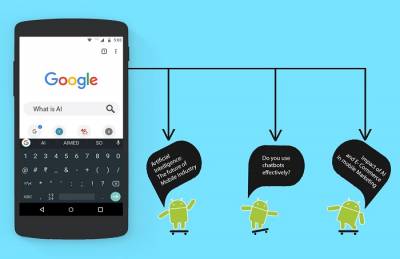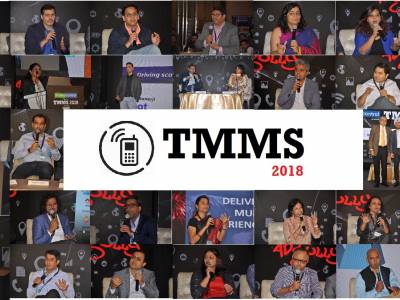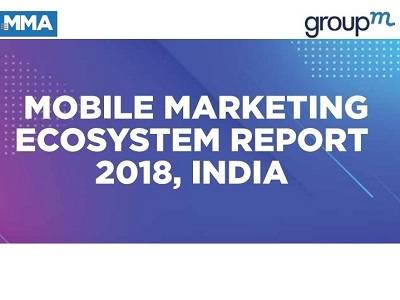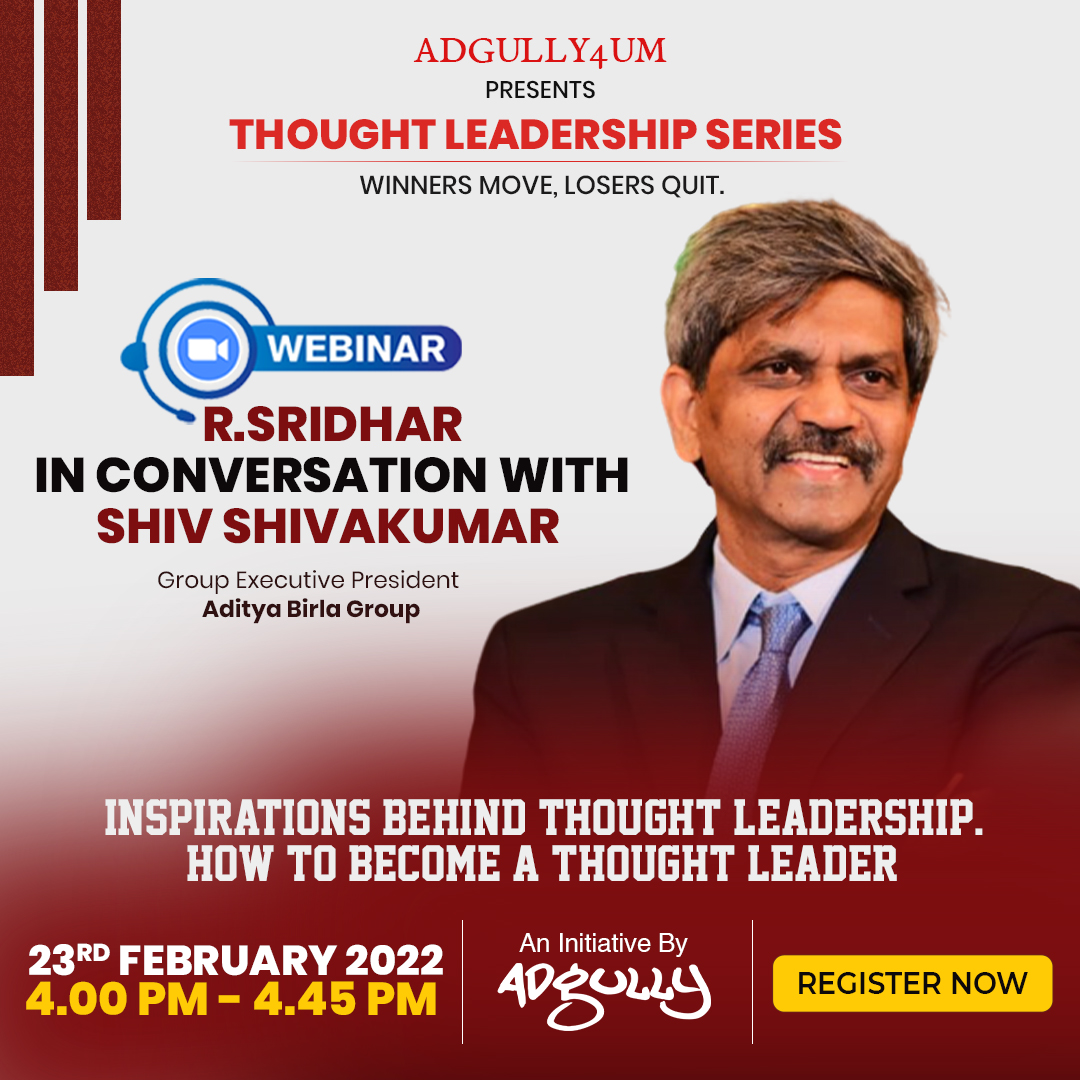How Artificial Intelligence can be a game changer for mobile marketing – Part 1
Artificial Intelligence (AI), also referred to as Machine Learning (ML), has begun to disrupt the marketing space, driving innovations such as big data and Internet of Things (IoT). In mobile marketing, AI is enhancing the mobile applications using emerging technologies. Mobile marketers have already started to focus on features and apps integrated with AI on almost all Android and iOS platforms.
With today’s consumers increasingly becoming mobile-first, there is great scope to enhance the advancements in the mobile industry. Every individual is spending more time on smartphones than that on laptops or PCs. This provides a great platform to mobile marketers to grab the target audience. Use of technology such as artificial intelligence, chatbots which help connect through auditory or textual methods, consumer data analysis for better audience targeting and e-commerce plays major role in engaging more consumers.
In this two-part in-depth report, Adgully speaks to some industry experts on how AI has been disrupting the mobile marketing space. Part 1 of the report focuses on the disruptive aspects of AI, the cost implications of adopting AI, and the pitfalls to avoid.
AI disruption and mobile marketing
Prasad Shejale, Co-Founder & CEO, Logicserve Digital:
“The new-age, mobile savvy consumers today are bombarded with a number of emails, push notifications, in-app messages and the like from brands on a daily basis. Record number of consumers are using ad blockers, countless number of ads across the world are deliberately ignored and there is mounting fatigue building from plain marketing speak. Clearly, there seems to be a growing gap between what a brand is pushing out and what people want to consume. The solution lies in personalisation at a scale which is beyond human capability. The massive amount of data generated is waiting to be leveraged in order to make meaningful and predictive insights about consumers for measurable returns.
As per the recently released Moor Stephens study, which was conducted across 800 companies in North America, the Asia-Pacific and Europe, global spending on digital marketing is approaching the $100-billion mark. A large part of that is the growing budget for mobile marketing, especially in marketing technology such as machine learning and AI. An AI-powered system can provide the right intervention at every stage of a campaign, including critical functions such as content optimisations (to match customer preference and brand message) and making sense of big data to identify trends that will strike a chord with the consumer. Importantly, predictive analysis also helps understand when is the best time to push out relevant, targeted suggestions about the other products or services a brand might offer to the users that would be most interested and not just everyone.
Specifically with mobile marketing, incorporating AI with video and becomes critical for brands to stay ahead of the curve. Whether its mobile video or chatbots, using AI will ensure that the brand attracts and engages the right audience. Additionally, AI plays a critical role in programmatic by automating (hence eliminating human bias) the media buying process to deliver optimal ROI. In a nutshell, AI is decluttering the market and brands are moving from mass marketing strategies to investing in a clear, focus-driven consumer engagement. In my view, seven to ten years from now, it would be hard to envision digital marketing without AI.”
Rajat Mehta, Senior President, Marketing & Corporate Communications, Yes Bank:
“AI disruption is all around us, chatbots, home devices such as Alexa, Google Home, smart watches, and driverless cars are all participating in creating a unique and customised customer experience. Today’s consumers are ‘mobile first’, spending more and more time on the internet with their smartphone than a computer/ desktop. India is, in fact, home to the second-largest number of smartphones in the world – more than 330 million in circulation (Google report).
Targeting options were always available for mobile platforms, but AI, I would say, has made it more effective. AI makes it easy to craft more targeted and personalised messages to its mobile users by behavioural trends and patterns and provide insights on consumer preferences and the best time for reaching them with those messages.
Incorporating AI technology with your mobile marketing strategy will be the key to creating value, delighting customers and gaining significant competitive edge.”
Priyanka Shah, Senior Director - Mobile, Isobar:
“Artificial Intelligence has created a great impact on human interaction with machines and devices. Whether it is Travel, Utility, Advertisement, Machinery or Telecom industry, AI has enhanced the customers experience greatly. Moreover, AI has made the decision-making faster and precise by assimilating enormous volume of information AI-driven personalised marketing is the future of brand communications. It is the art of creating and delivering communication tailored according to each individual consumer’s preferences that truly results in consumer delight. We, at Isobar, are customising majority of our campaign communication based on consumer purchase patterns, content consumption patterns, app usage behaviour to make the brand more relevant to the user and thus enhance engagement and conversion.”
Cost implications of adopting AI
Prasad Shejale, Logicserve: “The cost implications of adopting AI in mobile marketing will depend on various parameters such as tools deployed, features required and platforms chosen. Similarly, even with regard to outcomes, marketers must weigh in the nascent stage that AI is in, in India. This view is reinforced by a set of Gartner Research Circle respondents who, when asked what lessons they had learned from early AI projects, urged others not to fall into the trap of seeking only immediate monetary gains. They advised instead to aim initially for less quantifiable benefits from which financial gains would eventually arise. These might come from “softer” or more “open” outcomes, such as improved marketing or brand identity, or they could lead to wider benefits altogether.”
Rajat Mehta, Yes Bank: “As of now, high implementation cost is a major barrier for an organisation to adopt AI in their day to day functions. Given the number of start-ups entering the space and increasing competition, this barrier is expected to be reduced gradually.
However, for mobile marketing, one of the key implications for adopting AI isn’t cost, but identifying the right partner that can help you implement, believes in your core proposition and aid with speed. Yes Bank has created an ecosystem, called the A.R.T of digital Banking – Alliance, Relationships and Technology – where we are collaborating with challengers/ Fintechs across the entire EAT value chain (Engage, Acquire & Transact).”
Priyanka Shah, Isobar: “Cost of adopting an AI would vary for different brands as it involves in-depth scoping of how the brand wants to use AI to its benefit. There are various technology components like voice recognition, image recognition, machine learning, etc., involved in designing an AI led user experience. Hence, the cost can only be decided post understanding the brand challenges and designing an AI-based solution to overcome the challenges to enhance user experience and get the user closer to last mile conversion.”
Pitfalls to be avoided
Prasad Shejale, Logicserve: “One of the key learnings for marketers and brand owners would be to move beyond looking at AI as a buzzword. It is crucial to understand in-depth the technology and its impact on the brand, its consumers and ready the organisations for this change. Additionally, it is very important not to lose the human connect with consumers in the journey to automation. While chatbots are great for agility in addressing human queries with speed and precision during the initial phase of engagement, they lack the empathy required to address concerns. Hence, pulling the plug on customer service 100 per cent may not be a good idea for brands.”
Rajat Mehta, Yes Bank: “Take small steps. Marketers have to be ready for the future, especially while adopting any new technology. We, too, have seen success and failures while implementing martech strategies & solutions and have gained immensely in the learning process.
Don’t rely on past data to create AI applications to manage your real time campaigns, it could be a good start but not necessarily be the best the models/ scenarios for eternity. A good AI is only good as the quality of data that it feeds on, for example, Chatbots. Chatbots are perhaps the only AI-use case that have tasted success like no other. At Yes Bank we have seen huge success by implementing it in our acquisition campaign on Facebook, increasing conversions by 30 per cent for our facebook campaigns.
Lastly, a word of caution – relying on AI to solve all your marketing problems will obviously not help. In its nascent stage, your AI-model needs to undergo test scenarios and learn well from data fed to it so it can be implemented across all your marketing campaigns.”
Priyanka Shah, Isobar:
- Avoid Sampling bias
- Fast implementation without enough testing
- Making incorrect assumptions on the underlying training data
- Working with low volumes
- Not being creative with the provided data
- Expecting machines to understand business
- Using the wrong metric to measure the performance of a model
- Using characteristics that will not be available in the future, due to operational reasons
- Not considering the real-world implications and possible fallout of applying effective predictive analytics
Tomorrow: Part 2 – AI implications for brands, upgrading skill sets and more...
























Share
Facebook
YouTube
Tweet
Twitter
LinkedIn